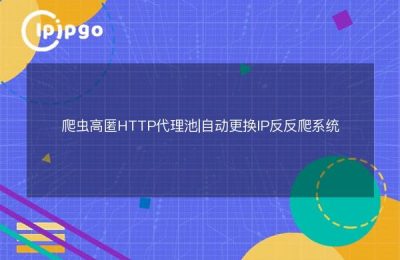
Crawler Agent Configuration Guide
When doing web crawling, using proxies can help you improve crawling speed as well as protect privacy. In this article, we will introduce in detail how to configure the proxy in the crawler, including the choice of proxy, configuration methods and solutions to common problems.
1. Choosing the right agent
Before configuring a proxy, you first need to choose the right type of proxy. Depending on the requirements, there are mainly the following types of proxies:
- HTTP proxy:Good for normal web requests, fast, but does not support encryption and is less secure.
- HTTPS Proxy:Supports encryption, suitable for scenarios where privacy needs to be protected, with high security.
- SOCKS Agent:Supports a variety of protocols, suitable for complex network requirements, such as P2P downloads, online games, etc., with high flexibility.
2. Basic steps for configuring an agent
In Python, proxies can be configured using the `requests` library. Here are the basic steps to configure a proxy:
-
- Install the `requests` library (if not already installed):
pip install requests- Configure the proxy in the code:
import requests
# proxy settings
proxies = {
'http': 'http://your_proxy_ip:port', # replace with your proxy IP and port
'https': 'http://your_proxy_ip:port', # replace with your proxy IP and port
}
# sends the request
url = 'https://example.com' # Replace with the URL you want to crawl
try.
response = requests.get(url, proxies=proxies, timeout=5)
response.raise_for_status() # check if the request was successful or not
print(response.text) # Print the content of the page.
except requests.exceptions.RequestException as e:
RequestException as e: print(f "Request failed: {e}")3. Handling proxy failures
When using proxies, you may encounter connection failures or request timeouts. To improve the stability of the crawler, the following measures can be taken:
- Use the proxy pool:Maintains a pool of proxies and randomly selects proxies to request in order to avoid a particular proxy being blocked or invalidated.
- Exception handling:An exception handling mechanism is used to catch request errors as the request is being sent and to change proxies as needed.
- Sets the request interval:Reasonably set the request interval to avoid frequently requesting the same target website and reduce the risk of being blocked.
4. Example of proxy configuration
Below is a complete sample code showing how to use proxies and handle exceptions in a Python crawler:
import requests
import random
# proxy list
proxy_list = [
'http://proxy1_ip:port',
'http://proxy2_ip:port',
'http://proxy3_ip:port',
# Add more proxies
]
def get_random_proxy():
return random.choice(proxy_list)
url = 'https://example.com' # Replace with the URL you want to crawl.
for _ in range(5): # try 5 requests
proxy = get_random_proxy()
print(f "Using proxy: {proxy}")
try: response = requests.get(url)
response = requests.get(url, proxies={'http': proxy, 'https': proxy}, timeout=5)
response.raise_for_status()
print(response.text) # Print the content of the page
break # Request successful, exit loop
except requests.exceptions.RequestException as e:: print(f "f")
RequestException as e: print(f "Request failed: {e}")5. Cautions
There are a few things to keep in mind when configuring and using proxies:
- Follow the crawling rules of the site:Check the robots.txt file of the target website and follow the crawling policy of the website.
- Monitor agent status:Regularly check agent availability and replace failed agents in a timely manner.
- Use highly anonymous proxies:Choose a high anonymity proxy to protect your real IP address and reduce the risk of being banned.
summarize
Configuring a crawling agent is an important step in improving crawling efficiency and protecting privacy. By choosing the agent wisely, configuring it correctly and handling exceptions, you can crawl the web effectively. I hope this article can help you smoothly configure and use the proxy to improve the stability and efficiency of the crawler.








